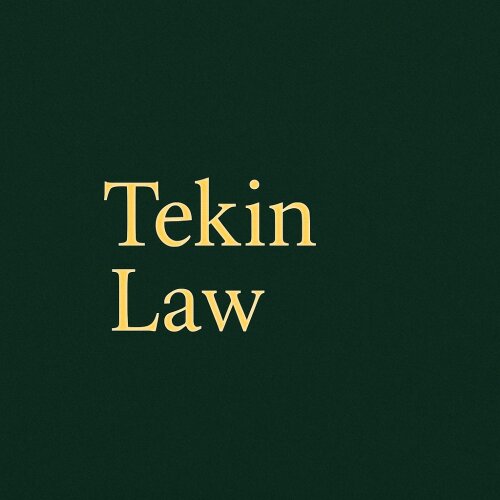Best Family Lawyers in Istanbul
Share your needs with us, get contacted by law firms.
Free. Takes 2 min.
Free Guide to Hiring a Family Lawyer
List of the best lawyers in Istanbul, Turkey
Legal guides written by Tekin Law Firm:
- Arbitration in Turkey
Turkey Family Legal Questions answered by Lawyers
Browse our 3 legal questions about Family in Turkey and read the lawyer answers, or ask your own questions for free.
- For Inheritance
- Good evening Sir / Mrs. My name is Lydia Pitao i am dual citizen Philippine and Turkish passport, i just need help and ask if you have international or inheritance attorney, I Bought a house in Philippine Year 2009 and got married 2011 in turkey and i didnt apply in... Read more →
-
Lawyer answer by Kaymaz Law Firm
The Turkish daughter does not have any right to inherit your house in the Philippines. Any inheritance rights she might have would only relate to assets your late husband owned in Turkey. Therefore, if your husband had property or assets...
Read full answer - Istinaf süresi hesabı
- Boşanma da Gerekçeli kararın karşı tarafa e-teblig edildiği tarihten mi yoksa e tebliğin okundu sayılmasını takip eden(5.gun sonu) günden 14 gün içinde mi istinaf yolu açıktır.
-
Lawyer answer by Kule Hukuk Bürosu
beşinci gün sonunda okundu sayılır ve sonrasında süreç başlar. açılmazsa dahi okundu sayılır.
Read full answer - Custody
- I am a foreginer, but i have a son in Philippines. We never married with my gf coz she was married before. Now we separated, and she took my son. But now she is saying me that she willl leave him to his mom and she will go to abroad.... Read more →
-
Lawyer answer by Kule Hukuk Bürosu
According to the Turkish legal system, custody of children born out of wedlock is generally given to the mother. However, the father can request custody or visitation rights, focusing on the best interests of the child. If you wish to...
Read full answer
Turkey Family Legal Articles
Browse our 2 legal articles about Family in Turkey written by expert lawyers.
- What Are the Child Custody Laws in Turkey?
- Table of ContentsIntroduction: Understanding Turkish Child Custody LawsThe Golden Rule: The "Best Interests of the Child" PrincipleThe Legal Foundation: Turkish Civil Code and International LawTypes of Custody Arrangements in TurkeySole Custody (Tek Başına Velayet)Joint Custody (Ortak Velayet)Custody for Unmarried ParentsThe Court Process and the Social Investigation ReportFinancial Considerations: How Child... Read more →
- How To Legally Get a Divorce in Turkey
- Table of ContentsIntroduction: The Judicial Process of Divorce in TurkeyThe Two Paths to Divorce: Uncontested vs. ContestedPath 1: The Uncontested Divorce (Anlaşmalı Boşanma)Eligibility RequirementsCreating the Divorce ProtocolThe Court HearingPath 2: The Contested Divorce (Çekişmeli Boşanma)Filing a Lawsuit on Legal GroundsThe Litigation Journey and EvidenceKey Decisions Made by the CourtChild Custody... Read more →
About Family Law in Istanbul, Turkey
Family law in Istanbul predominately follows Turkish Civil Code and covers matters relating to marriage, divorce, child custody, and inheritance rights among others. It offers protective measures for children and victims of domestic violence and advocates for equal rights within marriage. Family law is implemented by local courts, and the proceedings can be complex; it is therefore highly recommended to seek legal counsel when dealing with such issues.
Why You May Need a Lawyer
Legal matters related to family can be emotionally charged and complicated. Missteps can have long-term effects on these relationships as well as on your financial situation. You may need a lawyer if you are going through a divorce to ensure your interests are protected. Similarly, if you are involved in a dispute over child custody or child support payments, a lawyer can help guide you through the process. If you want to ensure an equitable distribution of property in the event of a divorce or death in the family, lawyers can provide critical assistance.
Local Laws Overview
Turkish family law enforces monogamy, and polygamy is strictly illegal. For a marriage to be valid, it must be registered with a competent Turkish authority. Turkish law encourages amicable divorce settlements, but if that is not possible, disputes are settled in Court. In the event of divorce, both parents have equal rights regarding child custody unless a court states otherwise. The Turkish Civil Code also endorses principles of equal property rights, meaning that properties obtained after marriage are equally divided among spouses in case of divorce.
Frequently Asked Questions
Are prenuptial agreements valid under Turkish law?
Yes, prenuptial agreements are valid and legally binding under Turkish family law. They must be recorded by a notary before marriage to be considered valid.
Can a foreigner file for a divorce in Turkey?
Yes, foreigners can file for a divorce in Turkey under certain circumstances. It is advisable to get legal advice to understand how international laws may impact the proceedings.
What rights do I have in terms of property distribution in a divorce?
According to Turkish law, properties acquired during the marriage are subject to equal distribution unless there is a prenuptial agreement suggesting otherwise.
Who gets custody of the children in case of divorce?
In Turkish Family Law, both parents have the right to custody unless a court determines otherwise based on the best interest of the child.
Can I legally change my child's last name?
Changing a minor's last name requires the consent of both parents. If one parent objects, court intervention is needed.
Additional Resources
The Ministry of Justice in Turkey provides several resources related to family law, including law texts, practice notes, and lawyer directory. Organizations like Istanbul Bar Association and Women's Rights Center in Istanbul can also provide legal guidance and resources.
Next Steps
If you are facing a family law issue in Istanbul, the first step is to find and consult a lawyer specializing in family law. They can guide you through your legal options and provide advice tailored to your specific situation. A lawyer will also help you handle paperwork, negotiations with other parties, and court proceedings if necessary.
Lawzana helps you find the best lawyers and law firms in Istanbul through a curated and pre-screened list of qualified legal professionals. Our platform offers rankings and detailed profiles of attorneys and law firms, allowing you to compare based on practice areas, including Family, experience, and client feedback.
Each profile includes a description of the firm's areas of practice, client reviews, team members and partners, year of establishment, spoken languages, office locations, contact information, social media presence, and any published articles or resources. Most firms on our platform speak English and are experienced in both local and international legal matters.
Get a quote from top-rated law firms in Istanbul, Turkey — quickly, securely, and without unnecessary hassle.
Disclaimer:
The information provided on this page is for general informational purposes only and does not constitute legal advice. While we strive to ensure the accuracy and relevance of the content, legal information may change over time, and interpretations of the law can vary. You should always consult with a qualified legal professional for advice specific to your situation.
We disclaim all liability for actions taken or not taken based on the content of this page. If you believe any information is incorrect or outdated, please contact us, and we will review and update it where appropriate.
Browse family law firms by service in Istanbul, Turkey
Istanbul, Turkey Attorneys in related practice areas.

















